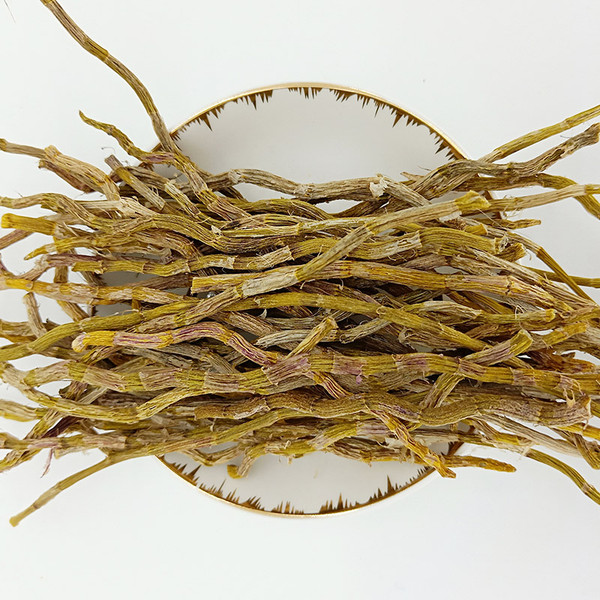Product Overview
Parts used: Fresh or dried stems
TCM category: Tonic herbs for Yin Deficiency
TCM nature: Cool
TCM taste(s): Sweet
Meridian affinity: Stomach Kidney Lung
Scientific name: Dendrobium nobile, Dendrobium candidum or Dendrobium fimbriatum
Use of dendrobium (Shi Hu) in TCM
Please note that you should never self-prescribe TCM ingredients. A TCM ingredient is almost never eaten on its own but as part of a formula containing several ingredients that act together. Please consult a professional TCM practitionner, they will be best able to guide you.
Preparation: Remove impurities, wash, soak in water and dry.
Dosage: 6-18 grams
Main actions according to TCM*: Tonifies the Yin of the Lung and Stomach and assists in the generation of Fluids. Clears Heat and nourishes the Yin. Improves vision and strengthens the lower back.
Primary conditions or symptoms for which dendrobium may be prescribed by TCM doctors*: Loss of appetite Fever Impaired vision Hematemesis Excessive thirst
Contraindications*: This herb should not be used by those without signs of Heat and Dryness. It should not be used in the beginnings of febrile diseases.
Common TCM formulas in which dendrobium are used*:
For chronic Stomach Heat with inflammation of the face, mouth or gums combine dendrobium with dwarf lilyturf roots (Mai Dong).
For Kidney Yin deficiency with pain and weakness of the lower back combine dendrobium with goji berries (Gou Qi Zi) and achyranthes roots (Niu Xi).
Key TCM concepts behind dendrobium (Shi Hu)'s properties
In Traditional Chinese Medicine (TCM), dendrobium are plants that belong to the 'Tonic herbs for Yin Deficiency' category. Tonic herbs are used for patterns of Deficiency, when one lacks one of the 'Four Treasures' (Qi, Blood, Yin and Yang). Yin tonics have a heavy, moist nature. They either nourish the Kidneys and Liver or moisten the Lungs and Stomach. Extreme Yin Deficiency often translates into a 'burn-out', unfortunately more and more common among people today. It is worth mentioning that another great remedy against Yin Deficiency is a lot of rest and sleep; no herb will ever be able to replace this!
Furthermore dendrobium are plants that are Cool in nature. This means that dendrobium tend to help people who have too much "heat" in their body, although with less effect than a plant that would be Cold in nature. Balance between Yin and Yang is a key health concept in TCM. Those who have too much heat in their body are said to either have a Yang excess (because Yang is Hot in nature) or a Yin deficiency (Yin is Cold in Nature). Depending on your condition dendrobium can help restore a harmonious balance between Yin and Yang.
Dendrobium also taste Sweet. The so-called "five elements" theory in Chinese Medicine states that the taste of TCM ingredients is a key determinant of their action in the body. Sweet ingredients like dendrobium tend to slow down acute reactions and detoxify the body. They also have a tonic effect because they replenish Qi and Blood.
The tastes of ingredients in TCM also determine what organs and meridians they target. As such dendrobium are thought to target the Stomach, the Kidney and the Lung. In TCM the Stomach is responsible for receiving and ripening ingested food and fluids. It is also tasked with descending the digested elements downwards to the Small Intestine. The Kidneys do not only regulate the urinary system but also play a key role in the reproductive system and the growth and aging process of the body. In addition to performing respiration, the Lungs are thought to be a key part of the production chain for Qi and the body fluids that nourish the body.








